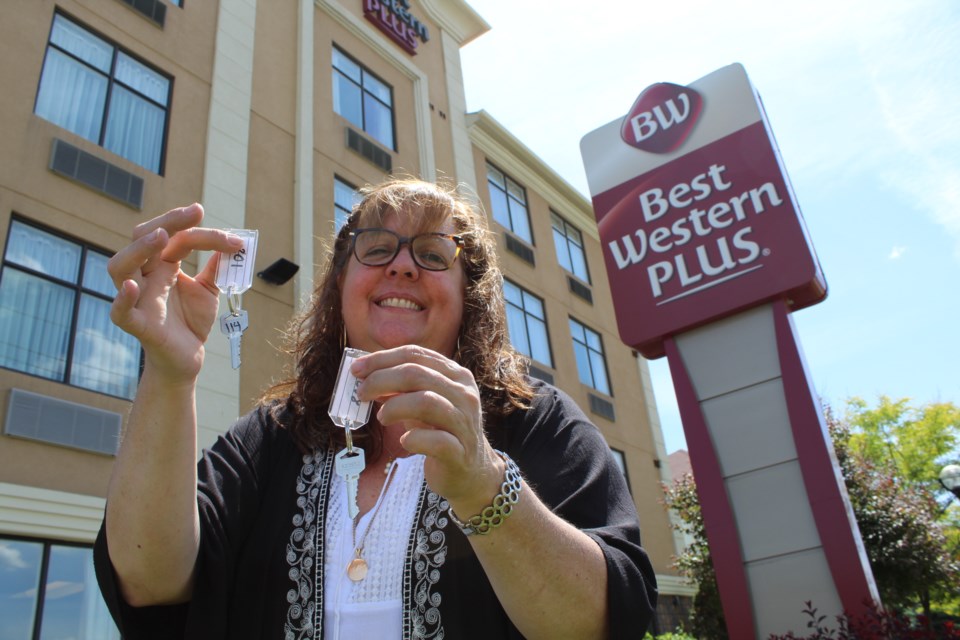Visitors spending the night in Barrie could soon have a 4% room tax added to the bottom of their bill.
The proposed tax is something other municipalities are already doing.
“This is not something that hoteliers or tourists will find as a one-off and uncomfortable,” Coun. Arif Khan said. “It’s something that the tourism industry and the tourism sector has come to accept as normal.”
Known as the municipal accommodation tax, the item was discussed at Monday night’s general committee meeting.
If approved by city council at next week’s meeting, the room tax would start being collected on Jan. 1, 2019.
The tax would only apply to the room rate and not to additional fees such as food and beverage, room services, internet access, parking, etc.
If the tax is approved by council, the money collected would be split between the City of Barrie and Tourism Barrie.
According to Tourism Barrie, there are 12 hotels operating in the city, employing approximately 320 people with an overall annual payroll of $8.45 million.
Based on the 2017 occupancy and accommodation revenues provided by Tourism Barrie, the estimated revenues that would’ve been subject to the tax is more than $30 million.
Based on a proposed 4% rate, tax revenues generated would be more than $1.2 million. Tourism Barrie would be allocated half, or around $610,000.
A tourism reserve fund would be established for the city’s portion of the tax, money which could be used for new capital assets, studies, strategic programs and marketing campaigns related to local tourism.
Khan said it relieves pressure on the taxpayer who would’ve previously been on the hook for tourism funding.
“This mechanism will be paid for by visitors and tourists in Barrie, not by the ratepayer, but the beneficiaries will be the residents of Barrie in terms of lifestyle, pursuing other opportunities such as Fisher Auditorium, or the sports complex,” he said of where the money could potentially go.
For Tourism Barrie, their portion would provide stable, predictable, sustainable and performance-based funding for sales and marketing programs, said executive director Kathleen Trainor.
She called it “a positive” for her organization, which has in the past has had to make annual funding requests.
“This gives us a long-term, sustainable plan,” she said.
Trainor said 10 of the 12 local hotels submitted letters of support on the new tax.
“The money goes back into marketing the city of Barrie as an overnight stay,” she said. “And the higher your occupancy, the more money you make, so you’re rewarded.
“Tourism will now have a master plan for where we go and why people come here,” Trainor added.
Barrie Mayor Jeff Lehman said it’s unusual to have a new tax embraced by industry.
“But clearly the hotel industry is telling us that this is going to help them grow their business, because the funds will be spent in the tourism industry locally and they don’t presumably see a negative impact on their businesses,” the mayor said. “That’s why we got so many letters of support.”
A 4% tax is in line with what other municipalities collect, including Ottawa, Toronto and Mississauga.
Lehman asked staff whether there has been any negative impacts for cities that have already imposed the room tax.
Stephannie Schlichter, the city’s director of business development, said many of them already had destination marketing programs, “so this type of fee was already implemented within the groups,” she said.
“We haven’t heard anything that we’ve seen so before that would indicate a detriment to this,” Schlichter added. “From a local perspective and with speaking with the hotel community … they saw it as an opportunity to promote marketing efforts to better enhance occupancy, which drives demand and room rate. So, it’s an overall benefit to the business.”
Destination marketing fees, which were voluntary, had been included on the bottom of hotel bills and administered by the hotel association, but the provincial government has changed the Municipal Act to include the collection of such fees.
“This is good for Barrie, because the other system was voluntary where only half the hotels would’ve contributed,” Trainor said. “This makes it every hotel, so it’s an even playing field for all of the accommodations to pay into marketing and promoting the destination.”
Tourism Barrie, which has been around for more than 30 years, would collect the room tax.
“They have the capacity to deliver this and collect on our behalf,” Khan said. “They have the expertise.”
If the tax is approved, city staff would report back to council annually in the first two years of the tax being collected.
A tourism working group would also be established, including two members of city council, four city staff members, one Downtown BIA member, two representatives of the Barrie Hotel Association, two from Tourism Barrie and one community representative from the sport events/facilities advisory committee.



